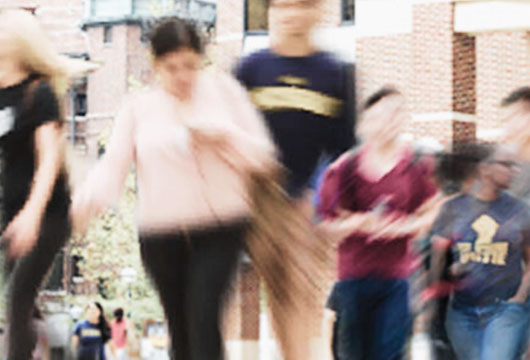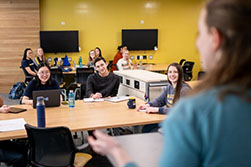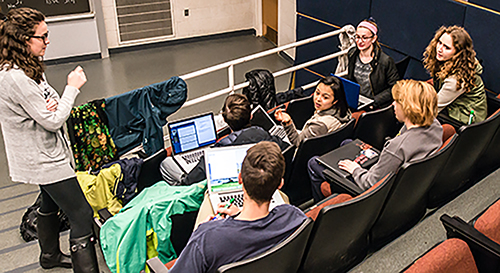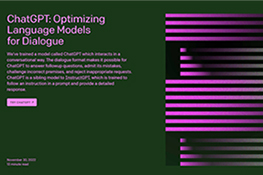| Transparent Teaching: A Focus of This Year’s Inclusive Teaching @ Michigan Series Tue, 03/17/2020 - 02:06pm What does ‘transparency’ mean in a teaching-learning context, and why is it a key principle featured in many CRLT workshops and resources about inclusive teaching? |
| Teaching in the Wake of Hate Incidents Thu, 02/27/2020 - 08:55am We wish we did not have so many occasions to provide guidance to instructors on teaching in the wake of hate-based violence. As our campus processes the news coming out of New Zealand today, we offer this slight update of a blog from October. In the wake of the massacre of worshippers at New Zealand mosques, many people in our community |
| Teaching with Student Veterans in Mind Mon, 07/13/2020 - 08:39am
*updated November 7, 2018 During U-M's Veterans Week, it's a good time to reflect on the needs of our students who have served in the military. Did you know that record numbers of veterans are enrolling in U.S. colleges and universities--and many of them are here on U-M's campuses? Since January 2014, the university's tuition policy has allowed students who have served in the military to qualify for in-state tuition. If you teach at U-M, odds are good you've had or will have student veterans in your classroom. How might your awareness of veterans in the classroom make a difference in your teaching? The research on student veterans suggests several strategies and cautions for teaching inclusively with veterans in mind. Here are a few: |
| Inclusive Teaching @ Michigan series 2018: Engaging Undergraduates as Teaching-Learning Partners Fri, 02/21/2020 - 10:27am In recent years, several colleges and universities have begun to include students more actively in faculty professional development opportunities, often engaging students to consult with faculty about both course planning and implementation. In a recent book on Engaging Students as Partners in Learning and Teaching, Alison Cook-Sather, Catherine Bovill, and Peter Felten delineate a range of positive outcomes of such student-faculty partnerships to improve teaching and learning. As these authors argue, “Students have insights into teaching and learning that can make [instructors’] practice more engaging, effective, and rigorous” (2014).
This year, as part of our 2018 Inclusive Teaching @ Michigan series (April 30 - May 4), CRLT will pilot two programs that include undergraduate student consultants as key partners for faculty who wish to think about course design in collaboration with students. These include: |
| Understanding "Nontraditional" Student Experiences in and out of U-M Classrooms Thu, 01/23/2020 - 12:01pm What do you know about the students in your classroom? How many of them are first generation? Who among them has served in the military? Which ones are in recovery for substance use? Who has children at home that they are responsible for? Are there other dimensions of your students' experiences that might fall outside of 'traditional' expectations for U-M students? According to a recent focus group study conducted by U-M’s Center for the Education of Women, 92% of student respondents who identify as “nontraditional” identified multiple markers of nontraditional status and 38% percent of respondents described their nontraditional status as a combination of five or more identities or life experiences. While some of these statuses were linked to visible identity categories, many of them were based on experiences that are not readily legible (e.g., being a veteran or being a commuter). However, these nontraditional experiences play a key role in how students experience the university, both inside and beyond the classroom. So how can instructors better understand these experiences to leverage diversity in the classroom and create inclusive learning environments? |
| Starting a New Term in the Wake of Charlottesville Violence Tue, 10/03/2023 - 01:15pm
As we move into the semester, we offer some guidance about related questions and concerns we have been hearing from a range of U-M instructors. Each topic below can be expanded by clicking the small arrow at the left. |
| Inclusive Teaching @ Michigan: May 2017 Series Thu, 01/23/2020 - 11:59am Faculty and GSIs from across campus are invited to register for the second annual Inclusive Teaching @ Michigan series. Instructors can register for any or all of over 15 workshops, panels, and presentations focused on a range of inclusive teaching topics. Sessions are free and open to U-M instructors in any field. Events will kick off with a session featuring the CRLT Players theatre program, focused on building resiliently inclusive classroom climates. Throughout the series, CRLT facilitators will be joined by collaborators including The Program on Intergroup Relations (IGR), the Center for Engaged Academic Learning (CEAL), the Ginsberg Center, Women in Science and Engineering (WISE), and the Lecturers' Employment Organization's (LEO's) Anti-Racism Task Force to offer sessions that help instructors develop awareness and skills in areas including:
Some sessions are designed particularly for instructors who are relatively new to conversations about inclusive teaching. Most are designed for a broad range of instructors, including those who are seeking to develop their established inclusive teaching practices. See the full schedule of events here. Anyone who participates in an Inclusive Teaching @ Michigan workshop is invited to join us at a catered closing lunch where we will reflect together upon the series and ways to continue developing the conversation about inclusive teaching among U-M colleagues. |
| Teaching in the Current Political Climate Tue, 10/03/2023 - 01:43pm
We have assembled some guidance in response to relevant questions and concerns we have been hearing from instructors in recent days. The following topics are looming large for many. Each topic can be expanded by clicking the +. |
| Returning to the Classroom after the Election Thu, 01/23/2020 - 12:00pm At CRLT, we have been hearing from many instructors seeking guidance on how to talk with their students in the days following the election. Depending on many factors, you may or may not choose to engage students in conversation about the election results. In either case, we hope the following thoughts will be helpful.
If you do choose to engage students on this topic, it will be important to acknowledge the range of perspectives and intense emotions that are likely present in your classroom. These guidelines on discussing difficult topics may be helpful for framing a conversation where students with diverse experiences and points of view can engage productively with one another. If you do not choose to address the topic of the election substantively but still want to acknowledge it, you can do the following:
If a student raises the election as a topic when you hadn't planned to discuss it, these resources may be helpful if you want to engage everyone in conversation. If you do not feel prepared to do so, you can recognize why the student might want to have the conversation, but explain that you want to think further about whether and how to engage it as a class because it is important to do so carefully given the intense emotions and divergent perspectives around this election. |
| Responding to Incidents of Hate Speech Tue, 11/03/2020 - 09:40am
The recent incident of hate speech that occurred at U-M is part of a disturbing national trend. A recent article in Inside Higher Education referred to “an epidemic of racist incidents at campuses across the country.” These upsetting events in combination with the heightened rhetoric of the election campaign have the potential to increase the stress levels experienced by members of the campus community, especially those from groups targeted by hate speech. It is useful to keep in mind that such incidents may still be on students’ minds when they enter your classroom, and that such incidents take a toll on faculty and GSIs as well. What can instructors do?
|


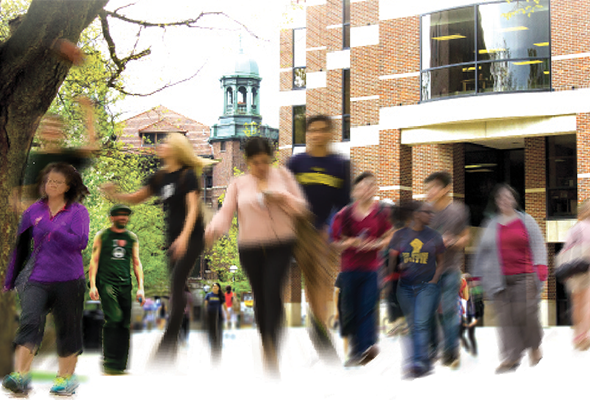 At its simplest, transparency means clearly communicating with students about course expectations and norms. As outlined below, such transparency can lead to more equitable learning experiences. That’s why transparency is the focus for this year’s Inclusive Teaching @ Michigan May workshop series. (Registration
At its simplest, transparency means clearly communicating with students about course expectations and norms. As outlined below, such transparency can lead to more equitable learning experiences. That’s why transparency is the focus for this year’s Inclusive Teaching @ Michigan May workshop series. (Registration 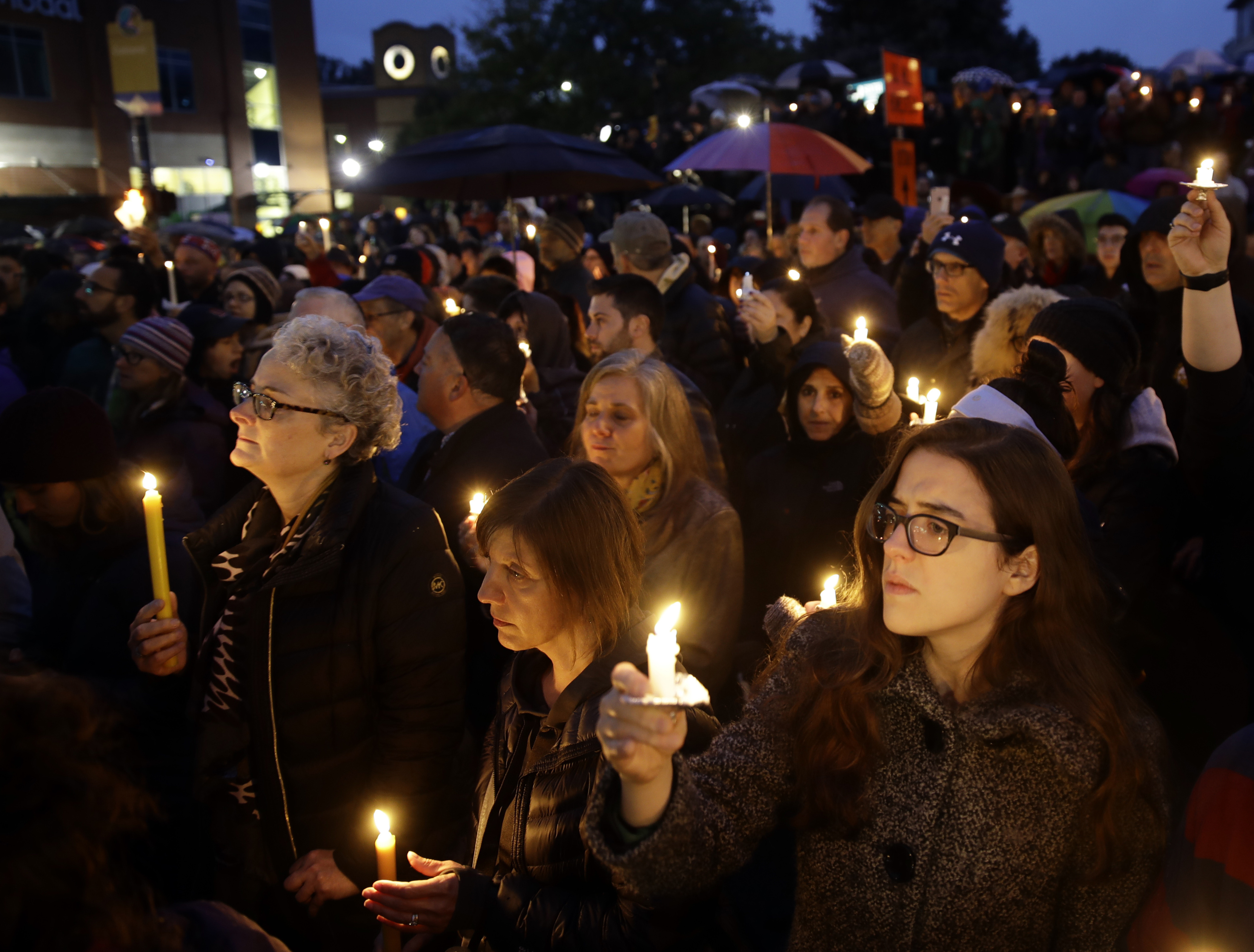 are feeling threatened and terrorized, grieving deeply, experiencing intense anger, or fighting a sense of despair at a swelling of hatred and violence in our world. These emotions enter our classrooms, studios, and labs, and they can understandably and significantly affect students’ ability to focus on their learning and work with peers in intellectual community.
are feeling threatened and terrorized, grieving deeply, experiencing intense anger, or fighting a sense of despair at a swelling of hatred and violence in our world. These emotions enter our classrooms, studios, and labs, and they can understandably and significantly affect students’ ability to focus on their learning and work with peers in intellectual community.
 We’d add that student insights can likewise contribute to teaching practices that are more inclusive and equitable. Drawing upon their experience learning from a range of instructors and alongside a range of peers, student consultants can offer perspectives on several key
We’d add that student insights can likewise contribute to teaching practices that are more inclusive and equitable. Drawing upon their experience learning from a range of instructors and alongside a range of peers, student consultants can offer perspectives on several key 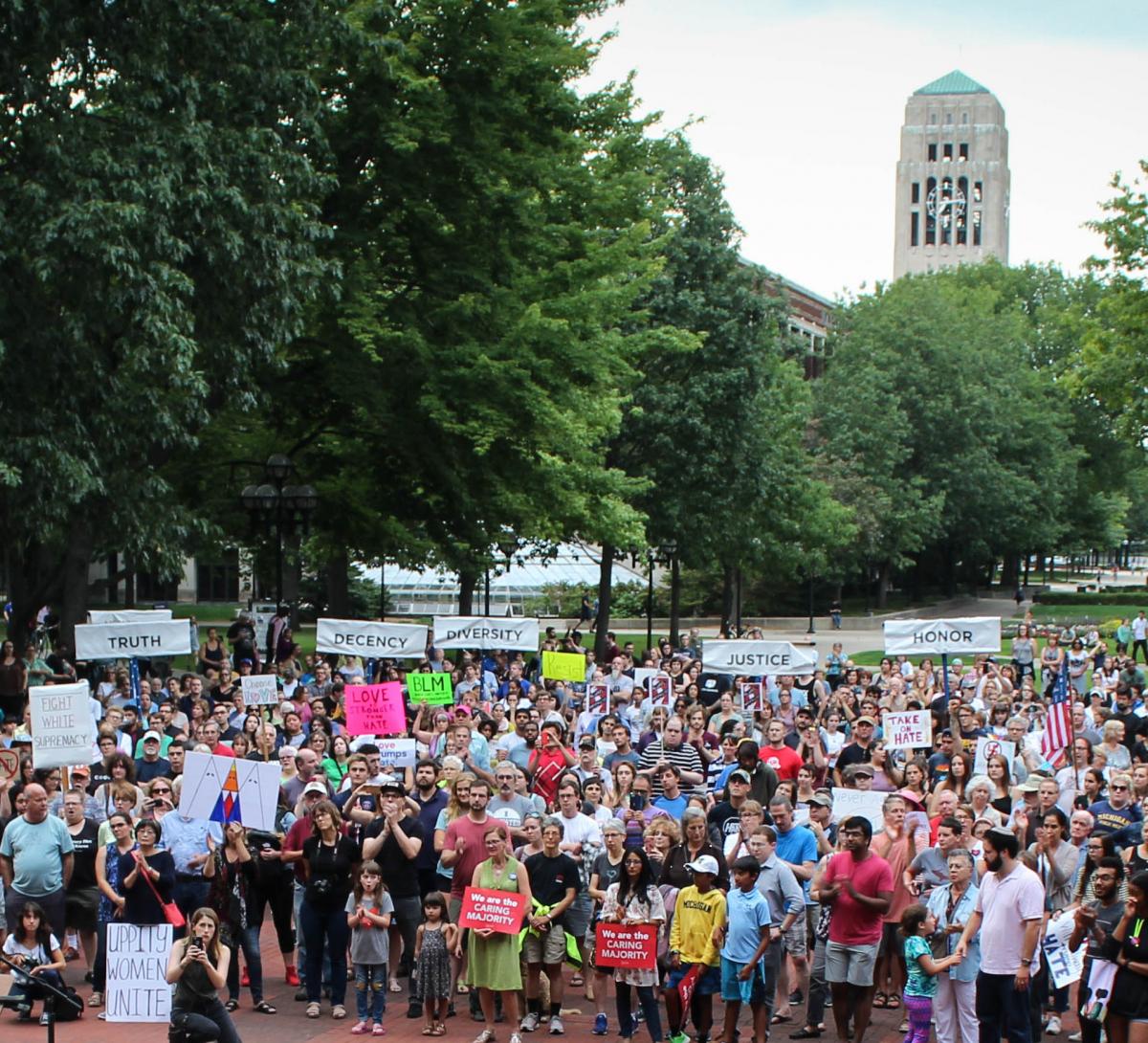 We return to teaching this semester in the wake of deadly white supremacist violence in Charlottesville and groundswells of resistance around the country. At such a critical moment in our nation’s history, instructors across campus are especially aware of how broader national conversations, conflicts, and movements are likely to enter and affect their classrooms, labs, and studios. As college
We return to teaching this semester in the wake of deadly white supremacist violence in Charlottesville and groundswells of resistance around the country. At such a critical moment in our nation’s history, instructors across campus are especially aware of how broader national conversations, conflicts, and movements are likely to enter and affect their classrooms, labs, and studios. As college  In a recent blog post, we addressed challenges and opportunities in
In a recent blog post, we addressed challenges and opportunities in 
